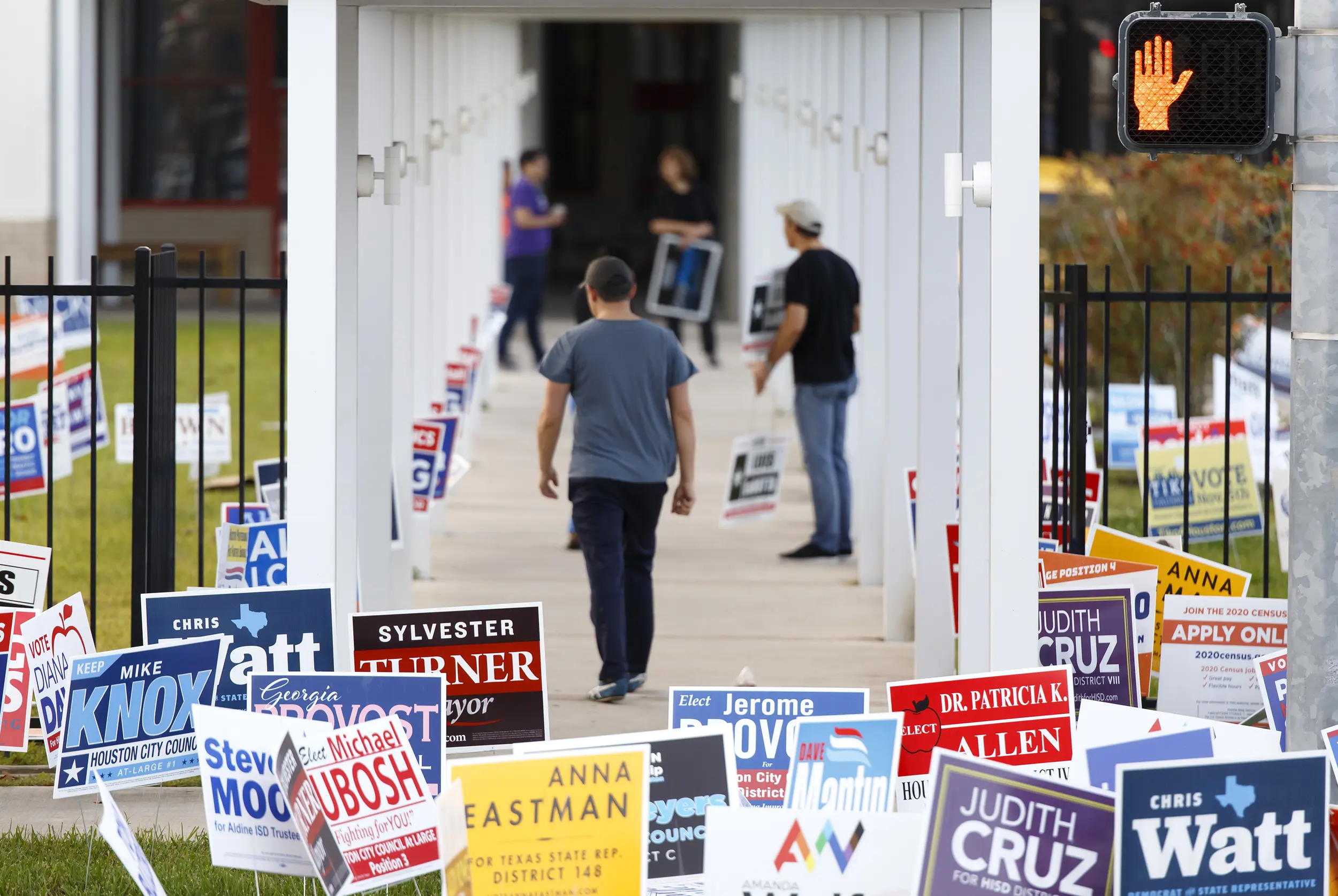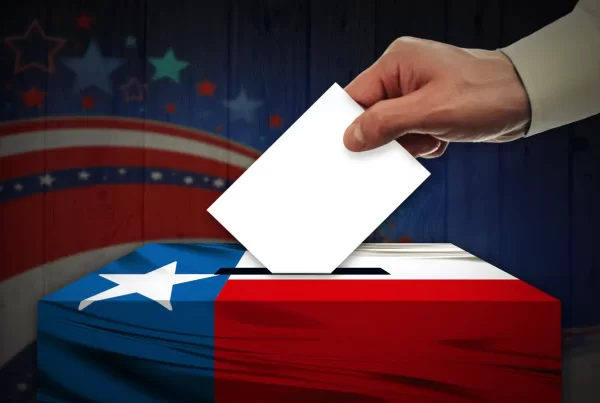General elections in Texas are statewide elections held every two years, which include races for a variety of state and federal offices, as well as referendums and ballot propositions.
General elections are held in early November of even-numbered years.
Types of General Elections
- Presidential Elections:
Presidential elections are held every four years during general elections in even-numbered years. These elections feature the election of the President and Vice President of the United States. In Texas, the presidential election occurs during even-numbered years that are multiples of four, such as 2016, 2020, 2024, etc. - Gubernatorial Elections (Midterm Elections):
Gubernatorial elections, in which voters elect the Governor and Lieutenant Governor of Texas, are held every four years. These elections occur during even-numbered years that are not multiples of four (i.e., midterm years), such as 2014, 2018, 2022, and so on. - Texas Senate Elections:
Elections for the Texas Senate are held every four years, and they coincide with gubernatorial election years. Texas Senate seats are filled by voters in each district. - Texas House of Representatives Elections:
Members of the Texas House of Representatives are elected every two years during general elections. These elections occur in all even-numbered years, such as 2020, 2022, 2024, etc. - Ballot Propositions: In addition to candidate races, general elections in Texas may also include ballot propositions to amend the state constitution.
A candidate must receive a majority of votes—more than 50 percent of the votes cast—to win a general election. If no candidate receives a majority, and there are three or more candidates on the ballot, a runoff election is held. In the runoff, the top two candidates from the original election face off, and the candidate who receives the most votes in the runoff wins the office.

Eligibility to Vote in Texas
To participate in a general election in Texas, voters must meet certain eligibility requirements:
- U.S. Citizenship:
Only U.S. citizens are eligible to vote in Texas elections. - Texas Residency:
Voters must be residents of Texas and have lived in the county where they are voting for at least 30 days before Election Day. - Age Requirement:
Voters must be at least 18 years old on or before Election Day. However, individuals who are 17 years and 10 months old can pre-register to vote and will automatically be registered once they turn 18. - Voter Registration:
To vote in a general election, a person must be registered to vote. Voter registration can be done online, by mail, or in person at various government offices such as the county elections office, the Department of Public Safety (DPS), or other designated locations. The registration deadline is typically 30 days before Election Day. - Voter ID Requirement:
Texas law requires voters to present a valid photo ID when voting in person. Accepted IDs include a Texas driver’s license, a Texas election identification certificate, a U.S. passport, a U.S. military ID, and others. Voters who do not have one of these IDs may obtain a free election identification certificate from the Texas DPS. - Not a Felon or Under a Felony Conviction:
Individuals who are currently convicted of a felony and whose voting rights have not been restored are not eligible to vote. However, individuals who have completed their felony sentence, including probation or parole, can regain their right to vote. - Mental Competency:
Voters must not have been declared mentally incompetent by a court to be eligible to vote.
Voting Methods
Texans have several options for casting their ballots in general elections:
- In-Person Voting (Early Voting and Election Day Voting):
- Early Voting: Texas allows for early voting in person, which usually begins 17 days before Election Day and ends 4 days before Election Day. Voters can go to designated polling locations during this period and vote at their convenience.
- Election Day Voting: On Election Day, voters must go to their designated polling place, based on the address provided during voter registration.
- Vote by Mail:
Voters who meet certain criteria, such as being 65 years or older, disabled, or out of the county on Election Day, can apply to vote by mail. Applications for a mail-in ballot must be submitted no later than 11 days before Election Day. - Voting Assistance:
Voters who are disabled or otherwise unable to vote independently can request assistance at the polls. This may include having a person of their choice help them complete their ballot.
Additional Information
- Voter Turnout:
Voter turnout in Texas can vary widely depending on the election cycle, with presidential elections generally seeing higher turnout than off-year elections. In Texas, voter turnout is often lower compared to the national average, with efforts underway to encourage more voter participation, particularly among young voters and historically underrepresented communities. - Polling Hours:
Polling places are typically open from 7:00 AM to 7:00 PM on Election Day, though hours may vary for early voting locations. - Ballot Propositions and Local Elections:
In addition to electing candidates, voters may also have the opportunity to vote on various ballot propositions, such as amendments to the Texas Constitution, or local issues (e.g., city ordinances or school district matters).
In conclusion, general elections in Texas are an essential part of the democratic process, allowing voters to decide on both local and national leaders, as well as crucial state policies. To participate, Texas voters must ensure they meet the eligibility requirements, register to vote, and make informed decisions on Election Day or during the early voting period.



